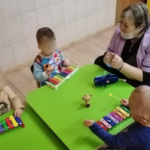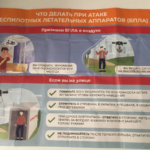Cultural Affairs Committee and Foreign Affairs Committee of the Riigikogu discussed the situation of Finno-Ugric peoples

Today, the Cultural Affairs Committee and the Foreign Affairs Committee of the Riigikogu (Parliament of Estonia) were given an overview of the activities of Estonia in supporting the Finno-Ugric peoples and of the preparations for the World Congress of Finno-Ugric Peoples, which would take place in Tartu in summer.
Chairman of the Foreign Affairs Committee Enn Eesmaa said that overviews of the situation of Finno-Ugric peoples had been on the agenda of the Committee since 2005. He pointed out that today’s meeting had been the Foreign Affairs Committee’s 20th hearing on the Finno-Ugric topic, and the third to be held together with the Cultural Affairs Committee.
In reply to the question raised by Eesmaa on the work-related migration of the Finno-Ugric peoples, the Committees were explained that the population number of our kindred nations was decreasing fast because people had been leaving mainly for more rapidly developing regions in the Russian Arctic in search for better work and bread. It is also a wide-spread practice to go to Moscow and Saint Petersburg for seasonal work because there are not enough jobs in the region.
Chairman of the Cultural Affairs Committee Aadu Must drew a parallel between the situation of Finno-Ugric kindred peoples and the Estonians living in Siberia. He said that the Finno-Ugric peoples were facing very serious problems, from Russification of names to the possibilities of learning their languages.
The fact that supporters of Finno-Ugric peoples have had difficulties with extending the Russian visa that is necessary for their work was highlighted at the sitting as being of particular concern.
Member of the Cultural Affairs Committee Signe Kivi considered it important to support the studies and culture of the students belonging to Uralic indigenous peoples who study at the Estonian universities. Deputy Chairman of the Foreign Affairs Committee Marko Mihkelson acknowledged Estonia’s work with the kindred peoples. In his opinion, the Kindred Peoples’ Programme is an excellent example of how Estonia as a small country can keep contacts with the kindred peoples and really do something for small nations.
The Committees were told about the preparations for the 8th World Congress of Finno-Ugric Peoples. The main theme of the Congress will be “Cultural landscapes – language and mind”. Besides the problems relating to language preservation, language imparting and bilingualism, the impact of climate change on Finno-Ugric peoples and the issues of cultural innovation will be discussed at the Congress held at the Estonian National Museum in Tartu from 17 to19 June 2020.
Member of the Foreign Affairs Committee Anti Poolamets underlined as a positive message that the topics of the Congress also include the opportunities of traditional and new media channels as well as the application of contemporary linguistic technologies within networks of Finno-Ugric peoples.
It was also that the Finno-Ugric peoples were having great problems with the media in their national languages, because there are few TV and radio channels. The situation of national languages in the Internet is a little better. The spread of national languages is also hindered by the legislative amendment passed in Russia in 2018, as a result of which national languages are taught and studied significantly less at schools.
Member of the Consultative Committee of Finno-Ugric Peoples Tõnu Seilenthal, Director Viia-Kadi Raudalainen and Counselor Jaak Prozes from NPO Fenno-Ugria, Chair of the Board of the Kindred Peoples’ Programme Sirli Zupping, Member of the Council of Elders of the Seto Congress Rieka Hõrn and representatives of the Ministry of Education and Research, Ministry of Foreign Affairs and Ministry of Culture were invited to the sitting.


Leave a Reply